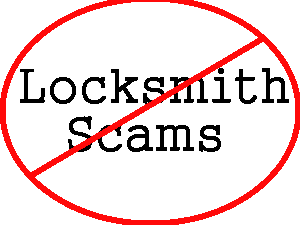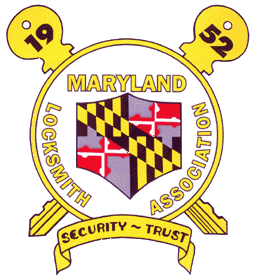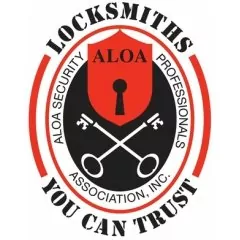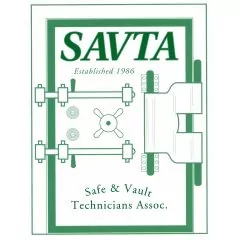 You reach your hand into your pocket and realized that your keys are locked inside your house. It’s late at night and you’re cold and tired. You take out your phone, google 24 hour locksmith and call the first one on the page. “24 Hour Locksmith, how can we help you?” You give them your information and wisely ask how much they charge. “$19 plus labor,” comes the answer. That doesn’t sound too bad, you think. When your lock is replaced and bill is a staggering $450, the alarm bells go off in your head. But it’s too late, you’ve been scammed.
You reach your hand into your pocket and realized that your keys are locked inside your house. It’s late at night and you’re cold and tired. You take out your phone, google 24 hour locksmith and call the first one on the page. “24 Hour Locksmith, how can we help you?” You give them your information and wisely ask how much they charge. “$19 plus labor,” comes the answer. That doesn’t sound too bad, you think. When your lock is replaced and bill is a staggering $450, the alarm bells go off in your head. But it’s too late, you’ve been scammed.
Here’s how they fool you.
- That number you called? It went to a central call center, a “scammer center” so to speak.
- They spend loads of money to build a website and get it to one of the first few results on your search engine.
- They forward your call to the highest bidder, regardless if the “locksmith” is a licensed professional or an ex-convict.
- All of these people pay a fee to the center in order to get the calls.
In short, there is no oversight, no accountability and the buck rules, not the law. Additionally, people are paid to create many false locksmith websites, all of whose phone numbers connect to the call center mentioned above.
They take advantage of your situation and overcharge you, only mentioning the complete costs when the work is complete. If you ask in advance, you’ll usually be quoted a base price plus labor, or told that it depends upon your lock, your car etc. Of course, no matter how long it takes them, no matter what lock you have and no matter what car or door they are working with, the costs are always staggering. They demand payment on the spot and only accept cash. They have your information and know how to open your locks, the last thing you want to do is cross them now. So you fork over the cash, wishing you had been wiser.
Common Locksmith Scams
There are numerous locksmith scams out there but here are the most common ones.
Usually, someone is locked out of their car or house after normal business hours. Since their regular locksmith is closed, they try to find someone who can come out to them. This puts them in a vulnerable position and their lack of knowledge of basic lock information makes them an easy target for scammers. Most locks have 5 pins. Your con man knows this, but you don’t so he tells you upfront he’ll charge you per pin, quoting a low price for 4 pins, a high price for 5 and an unbelievably inflated price for 6. You hope you don’t have a 6 pin lock, and when he says “you’re lucky, this lock only has 5 pins”, you feel relieved, not realizing that he set you up.
Additionally, he may say a pin is stuck, and you have no choice but to believe him. After all, you have no idea that it’s extremely rare for a pin to be stuck. He then kindly offers to drill and replace it. Of course, he damages your door, leaves you with a cheap lock, and charges you extra for the drilling and replacement. In fact, many of these frauds don’t even know how to pick a lock. Unlike a real locksmith who can pick almost every lock out there, these scammers don’t even know how to open the simplest one. They always find some bogus reason why your lock is “unpick-able” and then offer you the option of drilling, knowing that you’re stuck and desperate.
So how can you be sure that your locksmith is legitimate?
First of all, research your options before you end up locked out. Speak to family and friends to get their recommendations. This way when you need a number immediately, you know who to call, and you have their number. If you find yourself locked out and you don’t have a locksmith you trust, look one up online and read reviews. When you call, make sure they have a real name, not some generic, “24 Hour Locksmith”.
Be sure to get an exact quote and clarify that there will be no other fees. Remember that if the price sounds too good to be true, it probably is. If they won’t agree to give you a set price, hang up and call someone else. Last, ask if they accept credit card, even if you’re planning to pay in cash. Any fake locksmith won’t take credit cards; any real one will. And finally, make sure to take down their information when they arrive. Before they do any work, ask for a valid id and for their insurance number in case of damage. (Keep in mind that any legitimate locksmith should ask you for ID before picking any lock.)

 Customer Reviews
Customer Reviews FAQ
FAQ Blog
Blog













